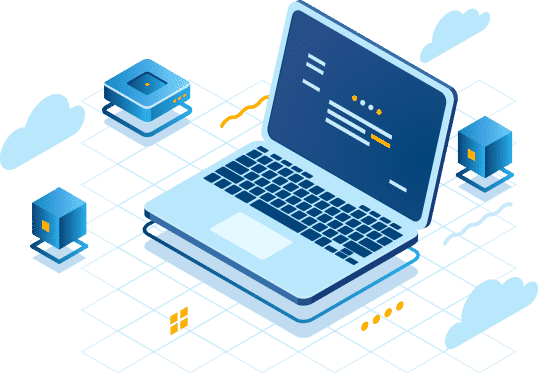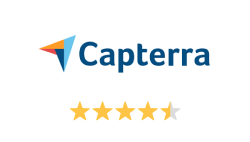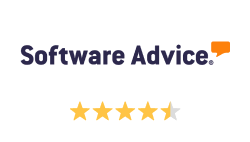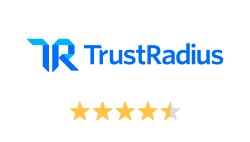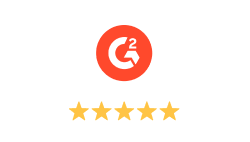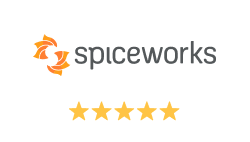Enterprise Patch Management Software That Just Works
Unified Cross-OS and Third-Party Patching
Real-time assessment of missing patches and compliance status
Custom application patching via Software Repository
No VPN is required for remote, off-site patching
Bandwidth-efficient P2P software update distribution
What Is Patch Management?
Patch management is the process of remediating software vulnerabilities by sourcing, distributing and applying software updates. Patching is the most important part of a vulnerability management program. Implementing Action1 helps to fix security vulnerabilities in operating systems and applications before they are exploited by threat actors. Action1 automates the patching process per patch management best practices by identifying missing updates, testing, approving, scheduling and deploying patches, as well as generating status reports.
Automate the entire patch management process
Unlike other patch management tools, Action1 implements a reliable and consistent patch management process, regardless of where your endpoints are. It automates the entire software update process, from scanning your network for missing updates, to installing patch updates to multiple endpoints in minutes and reporting on compliance status.
Keep operating systems patched
Update Windows and macOS consistently on all your workstations and servers, even if they are not on a corporate network, disconnected from a company VPN, or not joined to a domain.
Patch third-party applications
Deploy patches for dozens of the most common applications, tested by Action1 team shortly after release, and save the hassle of checking vendors’ websites for the latest versions. Patch your custom applications from the same console.
Detect missing patches in real-time
See in seconds what OS and application patches are pending on what machines, either by an endpoint or by an update. Be notified about new Windows, macOS updates and missing software patches waiting to be rolled out.
Enforce patch management policy
Prioritize patches based on their security severity. Choose the patching schedule for update deployment to meet your patching policy requirements, assign patches between critical and non-critical endpoints, avoid patching overlaps and user downtime.
Test and approve patches
Deploy Windows feature updates
Centrally upgrade Windows 10 to Windows 11 or install feature upgrades for Windows 10 or Windows 11 across the entire enterprise including remote employees.
Trusted by thousands of IT teams around the world


Why customers choose Action1
Patching without VPN
Patch remote and onsite endpoints with Action1 cloud-native platform. No company network or VPN connection required.
Ditch complexity
Start getting value in minutes, not hours or days. Deploy and patch software consistently without legacy technology, clunky integrations, or multiple consoles.
Avoid bandwidth issues
Deliver software updates faster and ensure network availability for critical applications with Action1’s P2P patch distribution capability.
Secure and trusted
Action1 is the only patch management solution with both SOC 2 Type II and ISO 27001:2022 certifications.
Patch offline devices
Improve your patch success rates by automatically installing OS and application patches, as soon as endpoints that have been offline come back online.
See phenomenal ROI
What Our Customers Say
Action1 helped us save about 125 hours per month by automating patch management. That’s a huge enabler to our business; as an MSP, the more you automate, the more money you save, and the more savings you can pass on to your customers.
I gotta tell you that Action1 has changed how I install updates — I feel like now I can sleep, knowing my clients are patched.
With Action1, I’m saving hours every week and bringing in better control and consistency across everything that we do. It was also very easy to deploy; I was able to quickly install it and ensure nothing was missed.
What Experts Say



Industry Awards
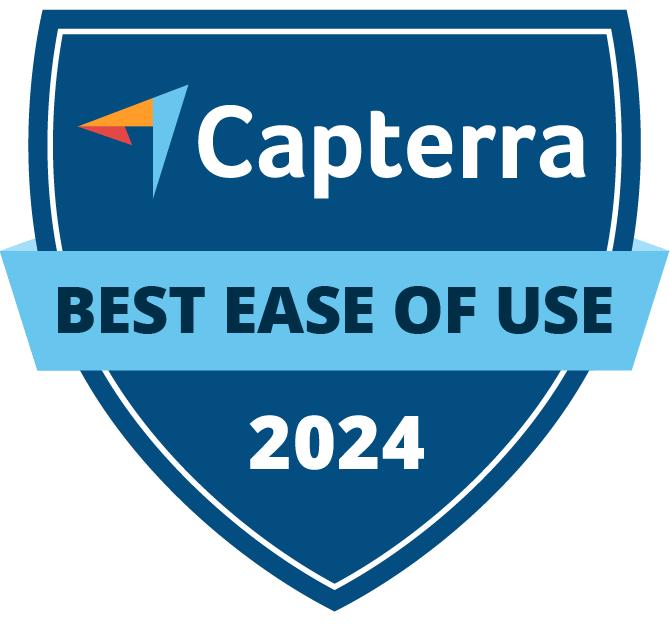
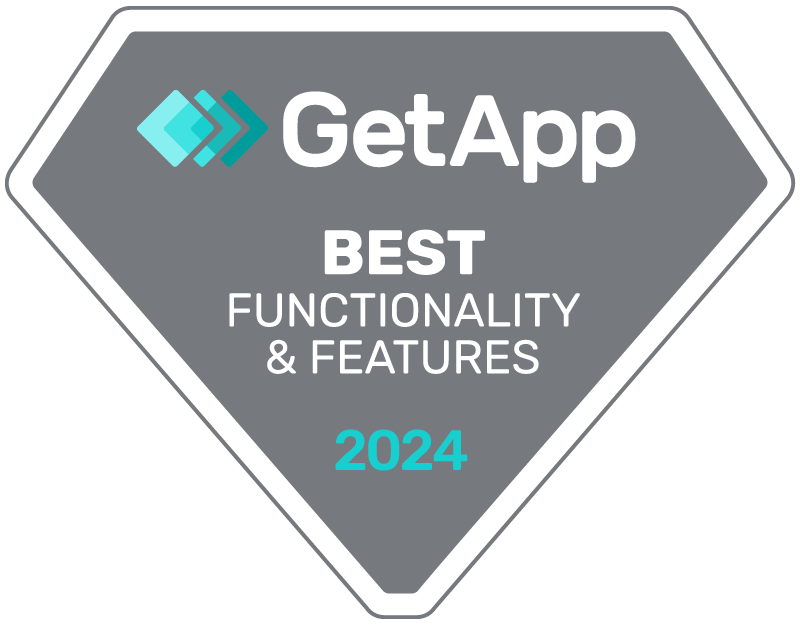
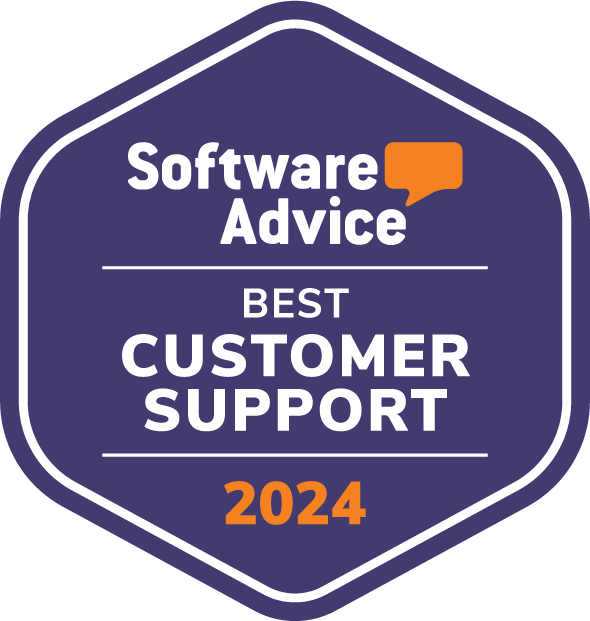



See #1 cloud-native patch management in action
Frequently asked questions
Is Action1 patch management software free?
You may upgrade and scale up at any point simply by getting in touch with our sales department.
How to get started with Action1 patch software?
Getting started with the Action1 computer patch management system takes a couple of effortless steps.
- Sign up to Action1 and create an account
- Install patch management agents to the desired endpoints
Find more details on how to get started with Action1 in the Documentation.
What is patch management software and how does it work?
Patch management software automates the process of keeping software up-to-date by installing updates called patches in order to address security vulnerabilities and close them timely, add new features, fix bugs, and improve the overall performance of software and devices. The process itself includes identifying, downloading, installing, and testing updates for endpoint operating systems, applications, and devices across an organization’s network. With the main purpose to ensure that systems run smoothly, error-free, and, most importantly, eliminate every vulnerability that can lead to launched cyberattacks.
The software works through several key mechanisms:
- Discovery: Through real-time monitoring, the software creates an inventory of all assets in your network, identifying all installed software versions, missing patches, and potential vulnerabilities.
- Distribution: The software identifies the systems that require updates, downloads patches from vendor sources, and distributes them to the target systems according to predefined policies and schedules. A reliable and effective patch management software can prioritize critical security updates, ensuring the installation of the most critical ones first.
- Deployment: The software installs patches automatically or during a personally scheduled maintenance window. It can stage updates to test environments first to check for compatibility issues before rolling out across every single endpoint in the network.
- Verification: This process checks and confirms the successful installation of the patch(es) and create audit logs for compliance reporting purposes. In case there is a failed update, the software will immediately notify IT teams to investigate.
Why is patch management software important for cybersecurity?
Patch management software serves as a critical defense mechanism against cyber threats by automatically addressing security vulnerabilities in systems and applications. This essential technology deploys timely updates to prevent cybercriminals from exploiting weaknesses in unpatched systems by blocking unauthorized access and malware attacks.
Regular patching effectively closes critical security gaps that malicious actors frequently target. Additionally, this software helps organizations maintain compliance with industry regulations while protecting sensitive information from potential breaches.
Through real-time monitoring capabilities, the system swiftly identifies outdated software versions and initiates immediate patches, minimizing vulnerability windows and significantly reducing organizational exposure to ransomware, malware, and other cyber attacks.
The automated processes ensure comprehensive coverage across all network endpoints while minimizing human error—traditionally cybersecurity’s weakest link—eliminating operational overhead and strengthening overall security measures. Furthermore, detailed audit trails maintain compliance records, providing clear documentation of security measures.
Patch management solutions offer centralized control over update schedules, enabling security teams to prioritize critical patches based on risk levels. This strategic approach prevents system disruptions while addressing severe vulnerabilities promptly.
How do I choose the best patch management software for my business?
Choosing the best patch management software for your organization is not an effortless task and requires careful evaluation of several critical factors to ensure both security effectiveness and business value. When evaluating potential solutions, ensure that they offer the following features:
- Real-time Visibility and Automated Patch Detection: This feature allows you to continuously monitor and identify missing patches, as well as discover vulnerabilities across your network.
- Multi-platform Support: Capable of managing updates for various operating systems.
- Third-party Application Patching: Ability to automatically identify and patch your essential third-party applications.
- Enterprise Scalability: Ability to go from hundreds to thousands of endpoints at a reasonable price.
Deployment Features:
- Automated Deployment: Installs patches automatically based on predefined rules, with flexible scheduling options to deploy updates during maintenance windows or off-peak hours.
- Test Environment: Allows patch testing before network-wide implementation.
- Rollback Capability: Reverts problematic updates to previous stable versions.
- Remote System Management: Controls update processes across distributed networks.
- Scheduled Patch Installation: This feature enables the implementation of planned updates during off-peak hours.
Security & Compliance:
- Secure Software Repository: Downloads patches from verified, secure sources.
- Vulnerability Remediation: Identifies vulnerable software and OS installed on endpoints in real-time, leveraging built-in remediation in a single solution.
- Compliance Reporting: Generates detailed reports for regulatory requirements.
- Audit Trail Maintenance: Tracks all patch-related activities and changes.
- Priority-based Deployment: Implements critical security updates first.
Management Tools:
- Centralized Dashboard: Provides unified control over all patching activities.
- Custom Deployment Policies: Creates specific rules for different device groups.
- User Notifications: Alerts employees about pending updates and system restarts.
- Success Verification: Confirms proper patch installation and system stability.
- Integration Capabilities: Connects with existing IT management tools.
How does patch management software improve IT efficiency?
Patch management software boosts IT efficiency by automating system maintenance tasks across network endpoints. Automated processes eliminate the need for manual updates while providing centralized control through a unified dashboard, enabling your team to manage thousands of devices simultaneously.
Strategic scheduling capabilities deploy updates during off-peak hours, maintaining business continuity without disruption. Furthermore, comprehensive testing features and rollback options minimize deployment risks, significantly reducing system downtime.
The automation extends to compliance documentation, generating detailed audit trails and reports that previously required extensive manual effort.
Through seamless integration with existing tools, these solutions streamline operational workflows while providing real-time monitoring of critical issues.
It is a well-known fact that advanced patch management features free your IT teams from routine maintenance, allowing them to focus on other critical tasks. This systematic approach transforms update processes, converting time-consuming tasks into efficient, automated operations that enhance overall productivity.
What are the key features to look for in patch management software?
Reliable and effective patch management software must provide you with the following features:
- Automated patch detection and deployment across all systems
- Multi-platform support for Windows, macOS, and third-party applications
- Comprehensive reporting and compliance tracking
- Quick rollback capabilities for patch issues
- Flexible scheduling for off-peak deployments
- Real-time asset inventory management
- Pre-deployment testing environment
- Bandwidth-optimized update distribution
- Priority-based security patching
- Remote management capabilities
- Integration with existing security tools
Security Features:
- Multi-Factor Authentication (app- and email-based)
- Single Sign-On (Entra ID, Okta, Google)
- TLS 1.2/AES 256 encryption
- IP restrictions and role-based access
- Comprehensive audit trails
- Malware scanning and patch assurance
- Automated security protocols
What industries benefit most from using patch management software?
Patch management software is beneficial for all businesses, especially those with strict security requirements like healthcare, finance, and government. These sectors deal with sensitive data and are prime targets for cybercriminals. Since they started using patch management software, which guarantees compliance with regulations and keeps their systems secure from countless cyber threats, this issue will no longer be a concern.
How often should patch management software be used?
Patch management requires continuous monitoring to maintain optimal system security and performance, helping you identify both missing and newly released patches that require attention. While routine updates like feature enhancements and minor security fixes can follow a structured weekly or monthly schedule during off-peak hours, critical security patches demand immediate actions. These critical updates address severe vulnerabilities that could compromise your system if left unpatched.
Your patch deployment schedule should balance security needs with operational stability. Configure automated patch deployment during scheduled maintenance windows to minimize business disruption, but treat critical security patches differently. Once tested, deploy these crucial updates promptly to prevent potential exploitation of known vulnerabilities. For instance, if you discover a critical zero-day vulnerability, delaying closing it through the next scheduled maintenance window could expose your systems to cyberattacks, potentially leading to catastrophic consequences for your organization.
What are the risks of not using patch management software?
Not using patch management software exposes your systems to severe security risks, because cybercriminals could easily find and exploit unpatched vulnerability in your system. These security gaps allow them to:
- Steal sensitive customer data
- Deploy ransomware attacks
- Compromise business operations
- Access financial information
- Install malicious software
Unpatched systems often violate regulatory compliance requirements, leading to significant fines and legal consequences. Many organizations face reputational damage after data breaches, losing customer trust and business opportunities. Protecting your systems through consistent patch management isn’t just an IT decision—it’s a crucial investment in your business’s survival and success.
How does patch management software integrate with other IT management tools?
Patch management software connects seamlessly with critical IT infrastructure through standardized APIs. Through this foundation, integration with IT Service Management (ITSM) tools automates ticket creation and tracking for patch deployments, while connected network monitoring solutions simultaneously provide real-time visibility into update status across your environment.
Building on this monitoring capability, Security Information and Event Management (SIEM) systems receive detailed patch alerts and compliance reports to enhance security oversight. This comprehensive view combines with asset management integration to ensure accurate inventory tracking, enabling Remote Monitoring and Management (RMM) tools to coordinate updates efficiently across distributed networks.
To further strengthen control, Active Directory integration enables targeted deployments based on organizational structure, working alongside automation platforms that trigger patch workflows according to your schedule. Supporting these automated processes, Configuration Management Databases (CMDB) maintain current system states.
